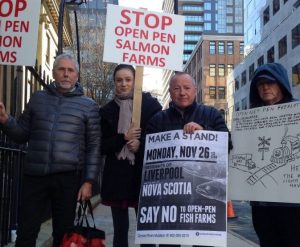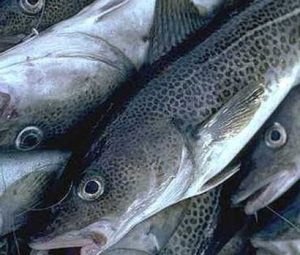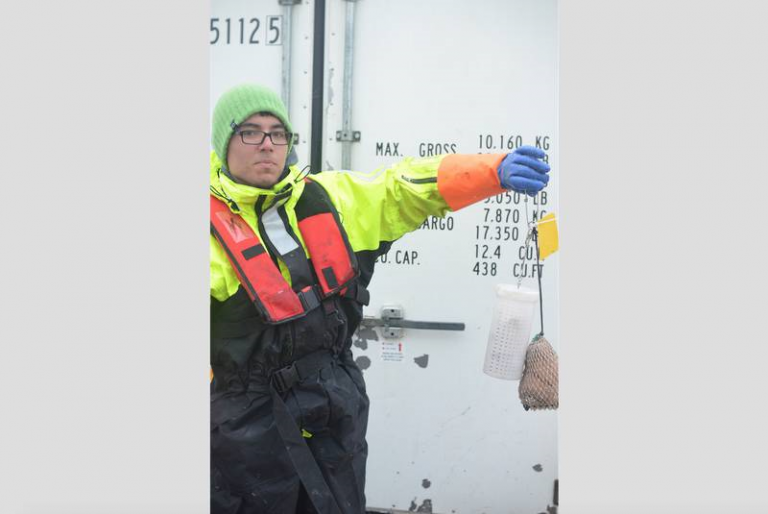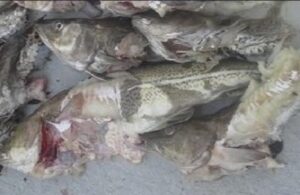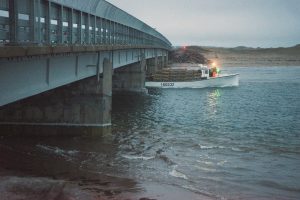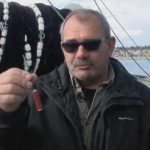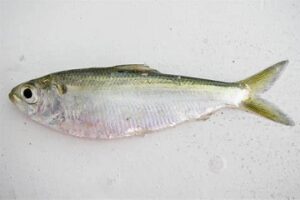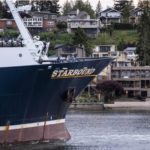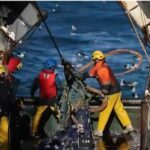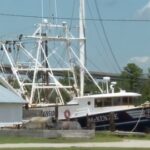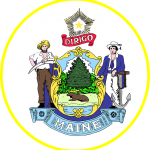Tag Archives: Cooke Aquaculture
Washington state poised to set precedent as first government in the world to successfully remove and permanently ban commercial net-pen aquaculture
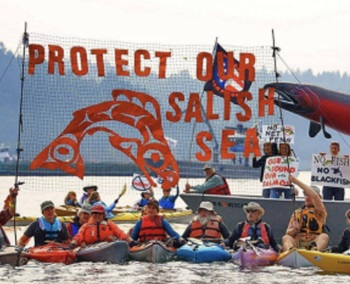 Washington state recently garnered international attention for its successful removal of all polluting and hazardous commercial net pens from Puget Sound. Now, the state is on the verge of adopting a statute that would prohibit this commercial industry from ever returning to Puget Sound. Washington would be the first place in the world to both entirely remove the existing industry and permanently ban future operation of commercial net pens in marine waters. In 2022, responding to the concerns of the public and the well-documented record of ecological harm, Washington’s Commissioner of Public Lands, Hilary Franz, rejected applications from seafood giant Cooke Aquaculture seeking new leases to continue operating their commercial net pens in Puget Sound. Concurrently, she issued a new executive order prohibiting commercial net pen aquaculture in Washington marine waters. Cooke Aquaculture is the company responsible for the catastrophic Cypress Island net pen collapse in 2017, which released over 260,000 nonnative, virus-infected Atlantic salmon into Puget Sound. more, >>CLICK TO READ<< 07:26
Washington state recently garnered international attention for its successful removal of all polluting and hazardous commercial net pens from Puget Sound. Now, the state is on the verge of adopting a statute that would prohibit this commercial industry from ever returning to Puget Sound. Washington would be the first place in the world to both entirely remove the existing industry and permanently ban future operation of commercial net pens in marine waters. In 2022, responding to the concerns of the public and the well-documented record of ecological harm, Washington’s Commissioner of Public Lands, Hilary Franz, rejected applications from seafood giant Cooke Aquaculture seeking new leases to continue operating their commercial net pens in Puget Sound. Concurrently, she issued a new executive order prohibiting commercial net pen aquaculture in Washington marine waters. Cooke Aquaculture is the company responsible for the catastrophic Cypress Island net pen collapse in 2017, which released over 260,000 nonnative, virus-infected Atlantic salmon into Puget Sound. more, >>CLICK TO READ<< 07:26
Lawsuit alleges Cooke Aquaculture using shell companies to skirt U.S. law
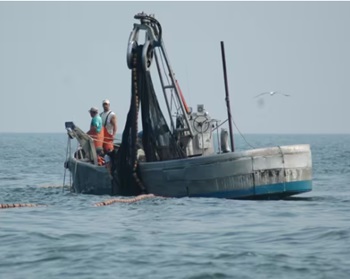 Cooke Aquaculture, one of New Brunswick’s largest companies, has asked for dismissal of a U.S. lawsuit accusing it of using a complex web of shell companies to break anti-foreign ownership laws. Saint John-based Cooke Aquaculture has owned Omega Protein, in Virginia, since 2017. Omega is affiliated with another company that operates a Chesapeake Bay menhaden fishery, a small baitfish used to make fishmeal, fish oil and other products. The menhaden fishery under Omega has concerned environmental activists, who say the company is overfishing a fish that many species up the food chain depend on in the Chesapeake Bay, which is slightly smaller than the Bay of Fundy. The lawsuit alleges Cooke is violating the American Fisheries Act, which requires 75 per cent of a company fishing in the U.S. to be owned by a U.S. citizen. more, >>CLICK TO READ<< 07:35
Cooke Aquaculture, one of New Brunswick’s largest companies, has asked for dismissal of a U.S. lawsuit accusing it of using a complex web of shell companies to break anti-foreign ownership laws. Saint John-based Cooke Aquaculture has owned Omega Protein, in Virginia, since 2017. Omega is affiliated with another company that operates a Chesapeake Bay menhaden fishery, a small baitfish used to make fishmeal, fish oil and other products. The menhaden fishery under Omega has concerned environmental activists, who say the company is overfishing a fish that many species up the food chain depend on in the Chesapeake Bay, which is slightly smaller than the Bay of Fundy. The lawsuit alleges Cooke is violating the American Fisheries Act, which requires 75 per cent of a company fishing in the U.S. to be owned by a U.S. citizen. more, >>CLICK TO READ<< 07:35
Gifford Cooke, co-founder of Cooke Aquaculture, dies at 85
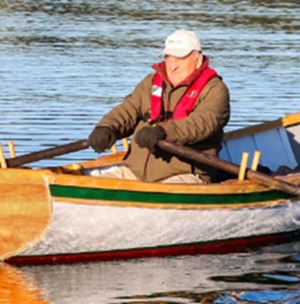 Gifford Cooke, who founded the now global seafood company Cooke Aquaculture from its humble beginnings in southwest New Brunswick, died on Sunday at 85. Cooke founded the company with his sons, Glenn and Michael, by setting up their first salmon farm at Kelly Cove in 1985, Cooke’s website says. They purchased their first hatchery in Oak Bay in 1989, and Cooke Aquaculture was established four years later. The company’s main brand, True North Salmon, has been used since 1994. Today, the company has nearly 13,000 employees and oversees a family of 13 brands, and Cooke Aquaculture remains based in New Brunswick. Premier Blaine Higgs released a statement on Monday to express his condolences, calling the locally-based company “a global success.” Photos, more, >>click to read<< 13:33
Gifford Cooke, who founded the now global seafood company Cooke Aquaculture from its humble beginnings in southwest New Brunswick, died on Sunday at 85. Cooke founded the company with his sons, Glenn and Michael, by setting up their first salmon farm at Kelly Cove in 1985, Cooke’s website says. They purchased their first hatchery in Oak Bay in 1989, and Cooke Aquaculture was established four years later. The company’s main brand, True North Salmon, has been used since 1994. Today, the company has nearly 13,000 employees and oversees a family of 13 brands, and Cooke Aquaculture remains based in New Brunswick. Premier Blaine Higgs released a statement on Monday to express his condolences, calling the locally-based company “a global success.” Photos, more, >>click to read<< 13:33
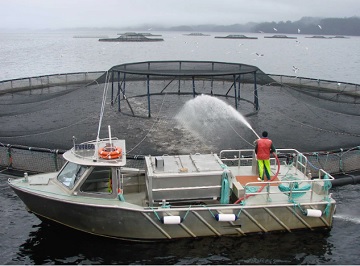
Tassal recommends shareholders accept $1.1 billion takeover bid from Canadian seafood giant Cooke
The last remaining Australian-owned major salmon producer looks set to go to foreign hands, after Canadian aquaculture company Cooke upped its offer for Tassal. Tassal told the Australian Securities Exchange that it has recommended shareholders accept Cooke’s latest $5.23 per share bid, which values the company at $1.1 billion. Cooke has attempted to purchase Tassal for months, lodging three unsuccessful takeover bids, with the latest in June valued at $4.85 per share. The potential acquisition of Tassal follows foreign takeovers of Australia’s other two major salmon companies. New Zealand seafood giant Sealord purchased Petuna in 2020, while Brazilian-owned JBS completed its takeover of Huon Aquaculture last year. >click to read< 10:09
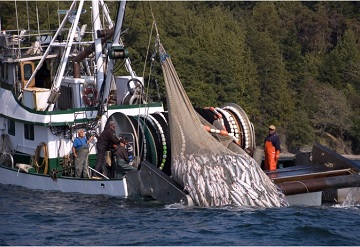
Jury awards $595,000 in damages to Lummi Nation for 2017 fish spill
Cooke Aquaculture accidentally released tens of thousands of nonnative Atlantic salmon in 2017, threatening native Pacific salmon, and the Lummi Nation’s traditional reliance on them. In 2017, a floating industrial salmon farm in the Northwest’s Puget Sound broke loose, releasing tens of thousands of Atlantic Salmon into the ecosystem. The nonnative salmon, raised in crammed industrial scale fish pens and considered a threat to native Pacific salmon, quickly swam throughout the bay. The Washington Department of Ecology later found that the farm owner, Cooke Aquaculture, the largest privately owned salmon-farming agribusiness in the world, had neglected to take care of its equipment. >click to read< 13:43
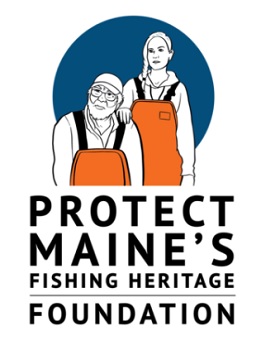
Many Questions Unanswered Following DEP Statement on Fish Die Off at Black Island
A Maine Department of Environmental Protection statement on the massive of die-off of nearly 116,000 salmon at pen sites off Black Island in mid-August raises more questions than it answers, according to groups concerned about industrial-scale aquaculture in Maine waters. The die-offs were discovered at the Cooke aquaculture pen sites on August 16 and weren’t reported to the DEP for almost two weeks. In a news release today, the DEP said that it had found no permit violations associated with death of the fish. Protect Maine’s Fishing Heritage Executive Director Crystal Canney said, “So the obvious question is – what killed the fish? You won’t find answers in the statement issued today, and we are still waiting to hear from the Department of Marine Resources, the primary regulating agency on net pen salmon. DMR was very quick to say that it was a dissolved oxygen issue, but the DEP has already ruled that out in its statement today.” >click to read< 16:48
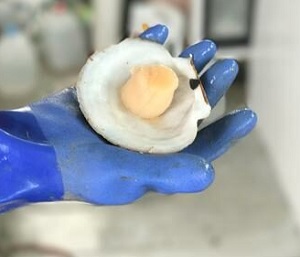
Large Scale Fin-Fish and Aquatic Farms Could Hamper Maine Aquaculture Industry
As proposed, the Nordic Aquafarms project would raise more than 72 million pounds of salmon annually on its 56–acre campus in Belfast, Maine. The site would utilize about 5,200 gallons of water per minute, a combination of both saltwater taken from the nearby Gulf of Maine and freshwater obtained from groundwater wells, city-owned aquifers and reservoirs. The permit application indicates the facility would discharge more than 7 million gallons of filtered wastewater into the Belfast Bay each day. It’s that last figure that concerns many local residents. Marsden Brewer is a commercial fisherman and scallop farmer who also serves as president of the Maine Aquaculture Co-op. Brewer was one of more than a dozen fishermen and fish farmers who spoke out against the Nordic project at a statewide hearing this spring. “After years of misuse, we’re finally starting to see a lot of good things happening in this bay,” Brewer says. >click to read< 09:56
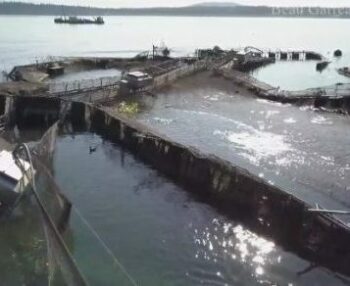
Judge hears lawsuit over fish farms in Puget Sound
Whether Cooke Aquaculture’s plan to raise native steelhead at fish farms in Puget Sound is a simple business transition or a complex threat to the marine ecosystem is being debated in King County Superior Court. Judge Johanna Bender heard testimony Thursday over Zoom in a lawsuit environment groups brought against the state Department of Fish & Wildlife for granting a permit to the seafood company to raise steelhead. “Did the department make a mistake in comparing the impacts of one type of stock to another, as opposed to comparing it to Puget Sound without fish farming at all?” she said.,, , the state Legislature passed a law that phases out Atlantic salmon net pen aquaculture by 2022 >click to read< 15:48
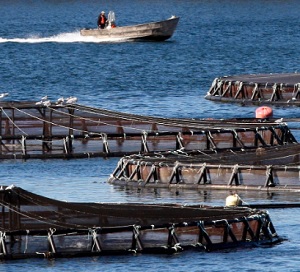
Opposition grows to expanding fin fish farming
The Trump administration and the aquaculture industry said the order, which is being implemented now, represents common sense steps to ease the burden of rules on fish farmers. “They’re trying to somehow connect open-water aquaculture with the need for domestic food. But it just doesn’t make sense,” said Marianne Cufone, executive director of the Recirculating Farms Coalition,,, Some fishing groups have also come out in support of the order. Scot Mackey, director of government affairs for the Garden State Seafood Association, which advocates for fishermen as well as farmers, said the order “will help the industry weather the current crisis and come back stronger.” Neville Crabbe, spokesman for the Atlantic Salmon Federation, a conservation group, said the federal permitting process should be creating land-based aquaculture rather than fish farms in the ocean, let alone offshore. >click to read< 18:13
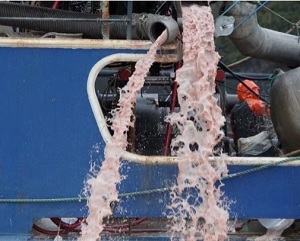
Farm raised salmon die in cages at a Cooke Aquaculture operation near Baie d’Espoir
In a statement, the company said the farm has a total of about 550,000 fish, and estimates about 14 per cent of them died off, which would put the number at more than 70,000 fish. The company’s statement blames the higher than expected number of deaths on “severe winter storm events experienced over the past month.” Cooke said they think the deaths happened in two of eight cages on the farm, which is run by Cold Ocean Salmon Inc., a subsidiary of New Brunswick-based Cooke Aquaculture. >click to read< 07:28
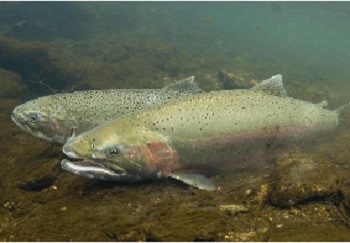
Washington Department of Fish and Wildlife Sued Over Steelhead Farming in Puget Sound
Environmental and conservation groups filed a lawsuit Tuesday against the Washington Department of Fish and Wildlife over the agency’s recent decision to allow Cooke Aquaculture to rear farmed steelhead trout in Puget Sound. The suit, filed in the Superior Court of Washington, alleges that the Washington Department of Fish and Wildlife issued a permit to allow steelhead fish feedlots, a type of fish-farming practice, to operate in the complex waterways of Puget Sound without any consideration of the consequences they would have on the environment. >click to read< 13:01
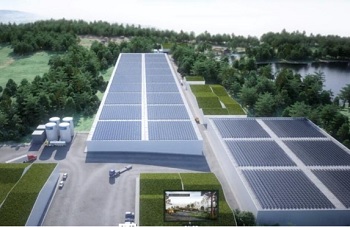
Large land-based salmon farms face opposition in Maine
“There’s a lot of things wrong with this project,” said neighbour Ellie Daniels. “But one of the major [problems] is water use, the discharge. And then the carbon footprint is gigantic on these things.” Daniels said Nordic Aquafarms proposes to use 7.7 million gallons of water a day, 30 per cent fresh, and 70 per cent seawater. On top of that, a series of onsite diesel generators will be required to create the energy to pump and circulate water in roofed and enclosed oval pens rising several storeys from ground level. >click to read< 08:14

Cooke Aquaculture agrees to pay $2.75M to settle lawsuit over salmon net-pen collapse
Cooke Aquaculture has reached a settlement to pay $2.75 million in legal fees and to fund Puget Sound restoration projects, putting an end to a Clean Water Act lawsuit that followed the 2017 collapse of one of the fish-farming company’s net-pen structures.,,, The legal settlement, which awaits federal officials’ review and a judge’s signature, bookends a contentious and litigious chapter in the fight over fish farming in Washington waters that resulted in the termination of some of Cooke’s leases, a $332,000 fine to Cooke from state regulators and a ban on farming nonnative fish, >click to read< 12:09
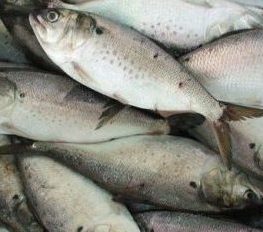
EDITORIAL: Menhaden harvest limit actually means something
Last week, the Atlantic States Marine Fisheries Commission, the partnership, or “interstate compact,” that sets harvest limits for 27 fisheries up and down the Atlantic Coast, officially accused Virginia of allowing Omega Protein to overfish,,, In a December 2017 press release on the deal, Cooke hinted at a new use: “The animal feed ingredients produced by Omega Protein are an important component in Cooke Aquaculture’s production of healthy Atlantic salmon, making this acquisition a strategic move that greatly enhances Cooke’s vertical integration.” So instead of rockfish, maybe the Bay’s menhaden will be feeding farm-raised salmon in Canada. >click to read< 09:15
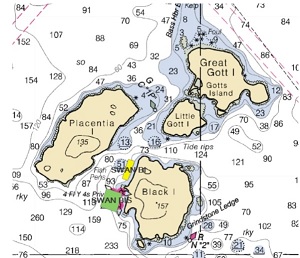
Cooke Aquaculture seeks renewal of salmon pen lease
Just weeks after Cooke Aquaculture agreed to pay the state more than $150,000 to settle numerous violations at several of its salmon net pen sites in eastern Maine, the Department of Marine Resources is asking for public comment on the company’s application for a 20-year lease renewal. The renewal is of a lease to grow salmon, other finfish and blue mussels on a 15-acre site located between Black Island and Placentia Island south of Bass Harbor and Great and Little Gott islands. >click to read< 12:29
Notice of Completed Renewal Application and Comment Period – Cook Aquaculture USA, Inc. – DMR has received a completed lease renewal application for the following: >click to read<
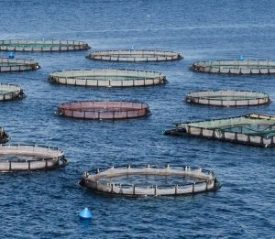
Aquaculture poses threat to the lobster industry
As president of the Maine Lobstering Union, I know we have struggled with several concerns this summer from right whales to bait shortages to aquaculture leases. We need to take steps now to fix rules and regulations around aquaculture. If we don’t, it will encroach on ocean space for everyone. The lease sizes have gotten so large we are making Maine’s oceans attractive to out-of-state corporations. By Rock Alley >click to read< 11:40
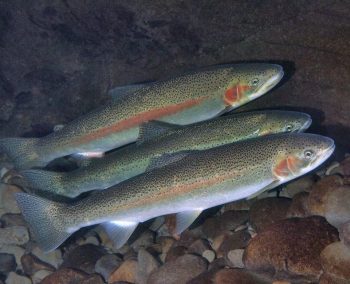
Still recovering from escaped Atlantic salmon, Cooke Aquaculture now wants to farm steelhead
In August 2017, at least 263,000 farmed Atlantic salmon escaped from Cooke Aquaculture’s net pens at Washington’s Cypress Island into Washington state waters. The incident launched a legislated process to phase out nonnative finfish farming in Washington by 2025, and a $332,000 fine for Cooke Aquaculture, a Canadian multinational seafood company. As Cooke sunsets its Atlantic salmon farming in the state, it has experienced at least two viral outbreaks impacting more than 1 million fish; and was fined for more water quality violations. But not quite two years since the disaster, >click to read< 12:21
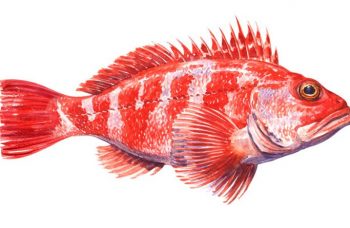
Canadian company wins approval for new lobster bait fish
The blackbelly rosefish is an abundant species that ranges from Canada to South America. Cooke Aquaculture, a New Brunswick, Canada-based company, requested Maine’s approval to sell rosefish as bait, and the company announced plans to harvest the fish off Uruguay. “We believe this is a solution to address concerns from the lobster fishery on the challenges they are currently facing on account of bait shortages,” said Glenn Cooke, chief executive officer of Cooke Inc., which includes Cooke Aquaculture.>click to read< 22:22
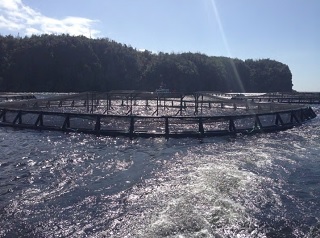
Fears that thousands of escaped salmon could ‘pollute’ wild stocks on Newfoundland’s south coast
The escape of thousands of farmed salmon on the south coast of Newfoundland is a significant concern, as is the lack of public notification about the incident, the Atlantic Salmon Federation says. Cooke Aquaculture confirmed Monday that over the course of four days last week between 2,000 and 3,000 salmon escaped from the company’s fish farm in Hermitage Bay.,, The primary concern is that the escaped salmon will mate with wild salmon, which Sutton said will “pollute the genetics” and harm a salmon population already assessed as threatened. Interbreeding has already happened between wild and farmed salmon in the province. >click to read<10:24
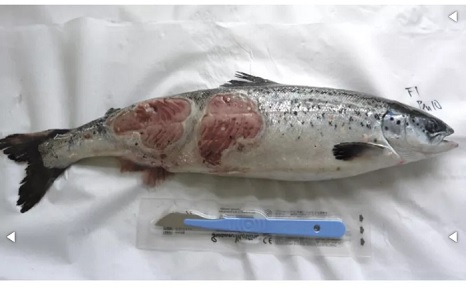
Horror photos of farmed salmon spark legal threat
The diseases, damage and infestations suffered by hundreds of thousands of caged salmon in Scotland have been exposed by more than 300 graphic photos released by the Scottish Government. Pictures taken since 2015 by fish health inspectors investigating mass deaths at salmon farms along the west coast and on islands reveal eight diseases, bloody lesions, eye damage, deformed organs, plagues of flesh-eating sea lice and much else.,,, The investigations were into outbreaks of disease and other issues at 27 fish farms run by six companies. The majority – 15 – were at farms operated by Marine Harvest, along with four run by The Scottish Salmon Company, three by Scottish Sea Farms, three by Cooke Aquaculture, two by Greig Seafood, two by Loch Duart and one not known. >click to read<17:42
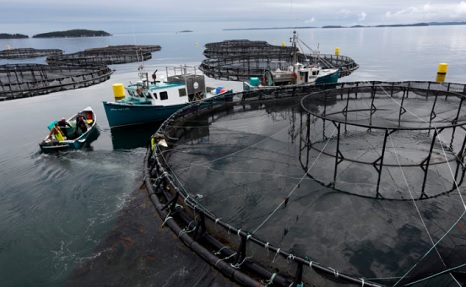
Canadian salmon firm admits using lobster-killing pesticide near Maine border
For the second time in five years, a Canadian salmon aquaculture firm has admitted in a New Brunswick courtroom to illegally using a pesticide known to kill lobsters for treating salmon off an island that abuts the Maine border. According to a CBC report, Northern Harvest Sea Farms admitted Tuesday to knowingly using the pesticide Salmosan 50 WP, without getting prior approval from the province, in an attempt to combat a sea lice outbreak at a salmon farm off Head Harbour on Campobello Island. Campobello Island is connected to the Maine town of Lubec via the Roosevelt International Bridge. >click to read<19:51
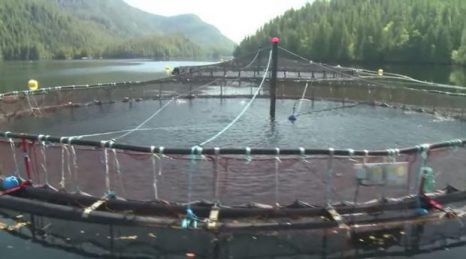
B.C. government looks into moving open-net fish farms onto land
British Columbia’s minister in charge of aquaculture tenures for the province is hinting at a major change in the provincial government’s approach to Atlantic salmon farming in Pacific waters. After the Washington State Senate passed a bill last Friday to phase out Atlantic salmon open-net fish farming in state waters by 2025, British Columbia’s First Nations hailed the move, raising hope the provincial government would do the same. >click to read<16:49
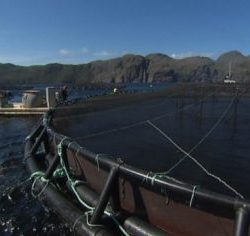
SURETTE: Open-pen fish farming a mess: How the world is passing us by
There’s big stuff happening in the dirty world of open-pen salmon farming. World production of farmed salmon is declining and prices are rising accordingly. The main culprit is sea lice grown immune to the chemicals used to wash them off, helped by algae blooms, fish disease, pollution, damaged wild stocks, and finally political disgust with the whole mess in the more enlightened jurisdictions. The move now, worldwide, is to either haul production to dry land or otherwise insulate the at-sea operations from the surrounding environment,,, >click to read< 18:28
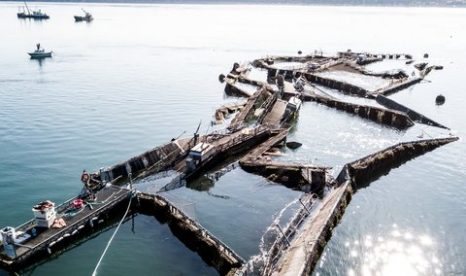
Fish farm caused Atlantic salmon spill, state says, then tried to hide how bad it was
Cooke Aquaculture Pacific vastly underrepresented the scope of a catastrophic Atlantic salmon net-pen spill at its Cypress Island farm last August and misled the public and regulators about the cause, according to a new report by state investigators that blames the pen collapse on company negligence. The investigation found that Cooke lowballed the number of escaped fish by more than half, and did not do essential maintenance at its farm, causing the escape. The company also misled agencies about the seriousness and cause of an earlier mishap,,, >click here to read< 20:26
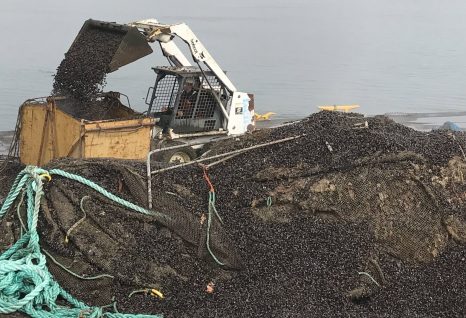
State investigators focus on nets plugged with mussels in Atlantic salmon net-pen failure
Investigators probing the collapse of an Atlantic salmon farm that sent 160,000 invasive fish into the Salish Sea last summer are examining mussels and other sea life coating the nets as cause. Photographs obtained by The Seattle Times under a public records request show portions of the nets at Cooke’s farm were so fouled with kelp, algae and especially mussels that the net was no longer visible.,, Cooke is required under the terms of its lease with the state to maintain its farms in a clean and safe condition. >click here to read< 21:10
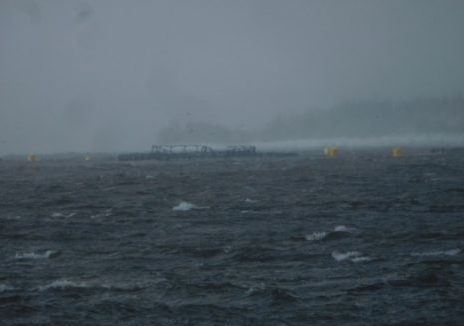
Nova Scotia: Storm damage to fish farm pens alarms Shelburne County fisherman
In addition to ice and snow, remnants of Nova Scotia’s first major winter storm are all over the shore of Jordan Bay, N.S. in the form of buoys and plastic pipes. The debris, which came from the Cooke Aquaculture fish farm, is concerning to commercial lobster fisherman Ricky Hallett. He suspects many of the fish died. “Seventeen out of 20 of the pens have the tops off them and most of them have the sides smashed down,” Hallett said. “I live just adjacent to the site and I can look right out on it.” click here to read the story 15:56
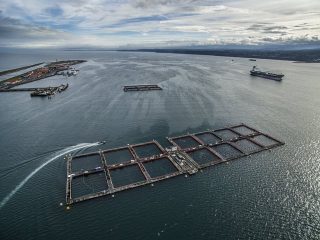
Atlantic salmon-farming company sues Washington state to keep its Port Angeles site open
Cooke Aquaculture Pacific has filed a lawsuit seeking to continue running its Atlantic salmon farm in Port Angeles. The suit, filed Thursday in Clallam County Superior Court, declares that Hilary Franz, commissioner of public lands, erred in revoking the company’s lease to operate the Port Angeles farm. Franz on Dec. 15 demanded Cooke shut down the farm and remove the fish and equipment. There are nearly 700,000 Atlantic salmon at the farm. click here to read the story 15:03 
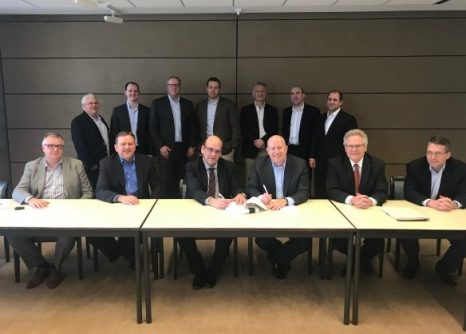
Cooke Aquaculture acquires Houston fishing company in $650M deal
Cooke Aquaculture acquired Omega Protein Corp. in a $500 million USD deal — approximately $650 million (Canadian) — in one of the single largest foreign investment deals a New Brunswick company has ever done in the United States. “It’s the single largest acquisition [our] company has ever made,” said Joel Richardson, vice-president of communications for Cooke. “When a New Brunswick company reaches beyond our borders and acquires a company outside our province, it helps strengthen jobs back here and at home.” click here to read the story 12:03
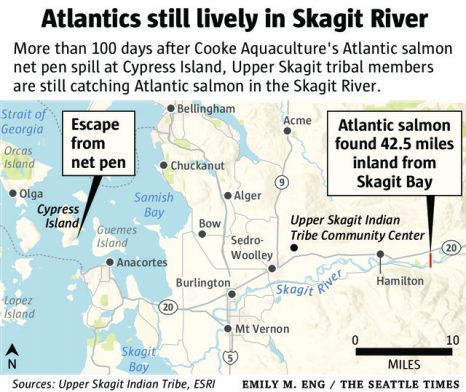
Escaped Atlantic salmon found 42 miles up Skagit River
Strong, silvery and feisty, the Atlantic salmon hit the boat deck, thrashing and thumping. It was the sixth one the Upper Skagit Indian fishing crew caught that day. More than three months after a massive escape of Atlantic salmon from Cooke Aquaculture’s net pen at Cypress Island, Atlantics are still turning up very much alive in the Skagit River, one of Washington’s premier Pacific salmon strongholds.,, Caught more than 42 miles up the Skagit in a brief fishery in just a short stretch of river, those Atlantics were surely not the only ones in the river or the region, said Scott Schuyler, natural-resources director for the Upper Skagit Indian Tribe, based in Sedro-Woolley. 11 photo’s click here to read the story 18:19






